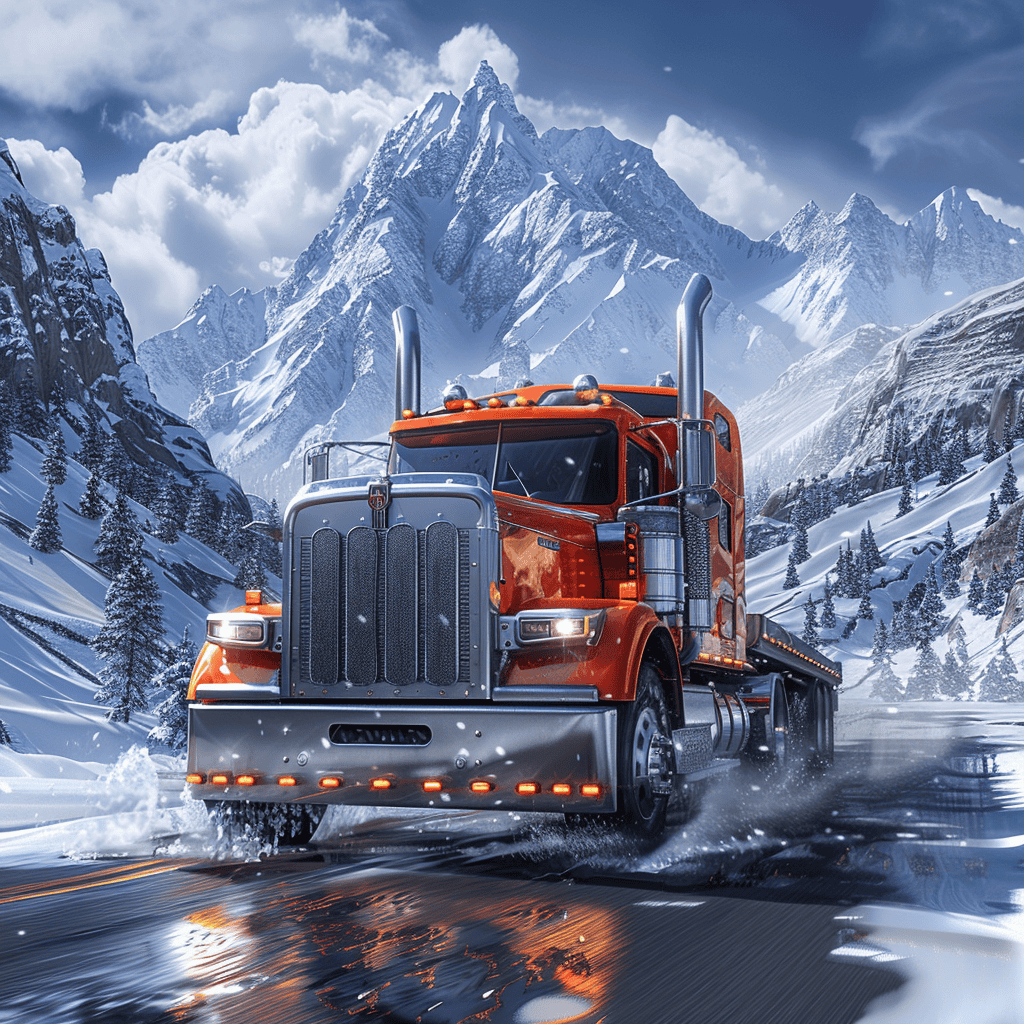New Jersey Oversize Permits
Freedom Heavy Haul can offer expedited Pickup and Delivery for any size shipment anywhere in the USA. Contact us today for No Hassle, No Pressure Pricing.
Transporting oversize or overweight loads in New Jersey necessitates obtaining the proper permits to avoid penalties and ensure safe travel. Understanding the specific requirements is crucial for compliance and efficient logistics. In this article, you will learn about New Jersey Oversize Permits.
New Jersey Oversize Permits
Maximum Dimensions
In New Jersey, the legal dimensions for transport without a permit are 63 feet in length, 8.6 feet in width, and 13.6 feet in height. Loads exceeding these dimensions require an oversize permit. For routine permits, the maximum dimensions are set at 120 feet in length, 16 feet in width, and 16 feet in height. Adhering to these dimensions is essential for the safety and regulation of roadways.
Weight Limits
The general weight limit for vehicles in New Jersey is 80,000 pounds gross vehicle weight (GVW). Axle-specific limits are 22,400 pounds for a single axle, 34,000 pounds for a tandem axle, and 56,400 pounds for a tridem axle. Loads exceeding these weights must obtain an overweight permit, with fees calculated based on the excess weight.
Validity Period
New Jersey oversize permits are typically valid for five travel days, providing sufficient time for transport across the state. It is crucial to secure the permit before commencing the journey to avoid legal complications.
Costs
The costs associated with oversize permits in New Jersey vary depending on the type and extent of the load. Understanding these costs is important for budgeting and financial planning.

Single Trip Oversize Permit
A single trip oversize permit costs $10. This fee covers the basic administrative costs associated with processing the permit for loads that exceed the standard legal dimensions.
Single Trip Overweight Permit
A single trip overweight permit also costs $10. This fee applies to loads that exceed the legal weight limits set by the state. Additional fees are incurred based on the amount of excess weight.
Combined Oversize and Overweight Permit
For loads that are both oversize and overweight, a combined permit is available for $20. This permit covers both aspects and simplifies the process for shippers handling complex loads.
Annual Permits
Annual permits for specific types of loads, such as ocean-borne containers, cost $100. These permits provide year-round access for specific types of transport, facilitating ongoing logistics operations.
Service Charges
In addition to the base fees, all permits are subject to a transaction fee of $12 and a service charge of 5% of the total permit fee. These charges cover administrative costs and ensure the efficient processing of permits.
Operating Times and Restrictions
New Jersey imposes specific operating times and travel restrictions to manage the flow of oversize loads and maintain road safety.

Permissible Operating Hours
Oversize loads are permitted to travel during daylight hours from Monday through Friday and until noon on Saturday. There is no travel allowed on Saturday afternoons, Sundays, or major holidays for overdimensional loads. Overweight-only loads are not restricted by these time limitations.
Restricted Routes and Areas
Certain routes in New Jersey have restrictions for oversize loads. These include NJ Route 495, the Holland Tunnel, the New Jersey Turnpike, the Garden State Parkway, and the Atlantic City Expressway. Special permissions are required to access these routes, particularly the I-95 section of the NJ Turnpike between Ridgefield and the George Washington Bridge.
Holiday Travel Restrictions
No travel is permitted on major holidays for oversize loads. This restriction helps manage traffic flow during high-volume travel periods and ensures safety on the roads.
Escort Vehicle Requirements
Certain dimensions of oversize loads necessitate the use of escort vehicles to enhance safety and compliance with regulations.

Width Over 14 Feet
Loads exceeding 14 feet in width require one escort vehicle. For widths over 16 feet, two escort vehicles are mandatory. These vehicles help manage traffic and ensure the safe passage of the oversize load.
Length Over 100 Feet
For loads over 100 feet in length, one escort vehicle is required. When the length exceeds 120 feet, two escort vehicles are needed. These escorts provide guidance and support for navigating complex roadways.
Height Over 14 Feet
Loads over 14 feet in height require a high pole escort vehicle. This vehicle ensures that the load can safely pass under bridges and overpasses without causing damage.
Additional Requirements
Transporting oversize loads involves specific signage, lighting, and notification requirements to maintain safety and compliance.
Signs and Flags
Vehicles carrying oversize loads must display “Oversize Load” or “Wide Load” signs. Additionally, red flags must be mounted on the extremities and corners of the load to alert other drivers.
Lighting Requirements
Low beam headlights and red tail lights on both the tractor and trailer should be illuminated during transport. This enhances visibility and safety during the journey.
Notification Requirements
When transporting a load that exceeds 14 feet in height, the permit holder must notify all relevant public utility companies, the New Jersey Department of Transportation, and local traffic engineering departments. This notification ensures that necessary precautions are taken to avoid infrastructure damage.
Application Process
Obtaining an oversize permit in New Jersey involves a specific application process to ensure all regulations are met.
How to Apply
Applications for oversize permits can be submitted through the New Jersey Department of Transportation. It is essential to complete the application accurately and provide all required information to expedite the process.
Required Documentation
Applicants must submit detailed information about the load, including dimensions, weight, and route. Supporting documents such as vehicle registration and insurance may also be required.
Contact Information
For assistance with the application process, contact the New Jersey Department of Transportation or specialized permit services. These entities provide guidance and support to ensure compliance with all regulations.
Special Considerations
Certain types of loads and transport scenarios require special considerations and clearances.
Superloads
Superloads, which exceed routine permit limits, require special clearances from the New Jersey Department of Transportation. These loads often involve additional planning and coordination.
Ocean-Borne Containers
Annual permits for ocean-borne containers facilitate the transport of these specific types of loads. These permits simplify logistics for companies handling maritime transport.
Special Clearances
Loads exceeding 150,000 pounds GVW or other specific limits require special clearance from the Department of Transportation. This clearance ensures that all safety and infrastructure considerations are addressed.







